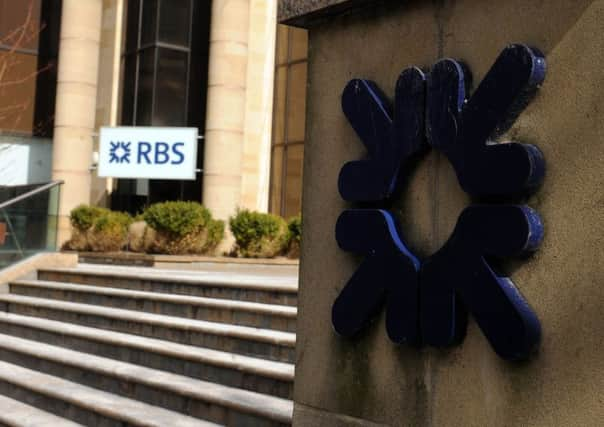Leaders: Making money never the RBS bailout object


Seven years after RBS was rescued at the height of the financial collapse, that day is almost upon us, following Chancellor George Osborne’s announcement in his Mansion House speech that the sell-off will begin in the next few months.
According to Mr Osborne, this is “the right thing to do for British businesses and British taxpayers”. Not so, says Chris Leslie, Labour’s shadow chancellor, who believes the Chancellor is selling at the wrong time, at great loss to the taxpayer, and should have been in the Commons yesterday to answer criticism over the strategy.
Advertisement
Hide AdAdvertisement
Hide AdIn one respect, Mr Leslie is correct. If the Chancellor chose to break the news at the Mansion House rather than in Parliament, he had a responsibility to be at Westminster the following day, rather than hand over to Treasury minister Harriet Baldwin to stand in for him.
The argument that the Chancellor is selling taxpayers down the river is more difficult. The bottom lines that Mr Leslie complains about cannot be denied. If the RBS stake is sold off in one attempt, a £7bn loss would be expected.
Of course, that is a poor return on the original price paid, but this is where the interpretation of investment needs some clarification. The government of the time did not view the situation as an opportunity for future gain. Bailing out RBS was about protecting the UK from an even bigger financial crash than was experienced. The deal saved RBS, and thus helped to shore up the economy at a time of crisis.
If RBS had gone under, the consequences would have been catastrophic. And if the shares are now sold at a loss of £7bn, then that was the price of this important intervention as the government desperately sought economic stability.
Mr Osborne has argued that although there may be a loss over RBS, he expects the taxpayer to be in the black to the tune of an estimated £14bn when the sale of the government’s remaining shares in all the bailed-out banks are sold.
The opposition claims that this will be wiped out by the £18bn cost to the Treasury to pay interest on the money it borrowed to fund the bail-outs. But again, that £4bn deficit would be the price of those bail-outs.
And if, at that time of crisis and panic, Labour had been offered stability for £4bn, the government would have jumped at the chance.
If the interests of the taxpayer are paramount, we must not forget that, ultimately, the 2008 deal was done in the interests of the wider economy – but never with a view to a dividend.
An over-Arching priority
Advertisement
Hide AdAdvertisement
Hide AdTHE plight of The Arches reached First Minister’s Questions at Holyrood yesterday, following the announcement that the arts venue had gone into administration.
Over the course of this saga, it has become clear just how treasured an institution The Arches has become in Glasgow. One of the main reasons that organisations go to the wall is because not enough people care about them to make them viable. Instead, there has been a chorus of influential voices appealing for The Arches to be saved, along with an online petition which has attracted almost 40,000 backers.
The Arches’ management said it had no other option but to appoint administrators, because a decision by Glasgow Licensing Board to restrict the opening time until midnight instead of 3am had made the business model as part arts venue, part nightclub, untenable. The board had concerns over public safety, mainly over drug-related incidents, which it said could not be put aside simply because of the financial situation of the premises. This is true, of course, but it does not appear that the search for every possible solution to this problem has been exhaustive so far.
The issues that have taken The Arches to the brink of closure are undoubtedly serious but need not be insurmountable. It is encouraging to hear Deputy First Minister John Swinney tell Holyrood that the Scottish Government will look at all ways possible of assisting in “safeguarding the future of what I recognise as a significant cultural venue”.
Getting all relevant parties round the table should be an urgent priority.